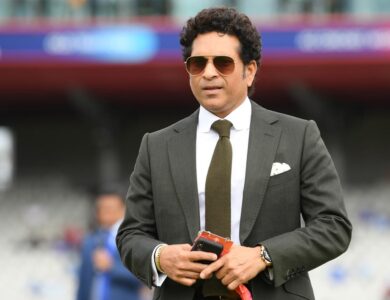
Ali Abbas Zafar’s Nonpayment Claims: A Glimpse at the Controversy
The glamorous appeal of the Indian film industry sometimes has controversy that raises concerns for difficult times in show business. The latest one to come out under such shades of grey is popular director Ali Abbas Zafar, who has been at the center of an open spat on social media with a producer over alleged nonpayment of dues. He has been much in the news for his recent films like Sultan and Tiger Zinda Hai. He has already created controversy related to the non-payment of dues, thus causing a furor in the industry. The matter brings to light a much more pertinent discussion on the financial dynamics of Bollywood and how this dispute over terms and conditions at work goes on to relate to a career in the entertainment industry.
Background of the Dispute
Ali Abbas Zafar has emerged one of the most consistent Bollywood directors, synonymous with commercially massive films. This is because he has had his share working with superstars such as Salman Khan and Katrina Kaif, making him one of the most sought-after directors within the industry. Even this established director’s claim against a film giant shows how mighty players can also not be too big to save from fiscal issues in the entertainment world.
The allegations are of non-payment from one of the projects Zafar was working on, for which he expected to be paid off once the work was delivered. The director responded with the fact that work has been delivered but the producer has not settled the amount agreed with the director. This reportedly caused quite an annoyance to Zafar who, like all others, cannot hope for a smooth flow of working on the upcoming ventures without timely compensation.
Allegations Made by Zafar
The basic problem with which Zafar has an issue is due to the inconsistency in the financial agreement breach. He said to the media that he had several times discussed the matter with the producer through private channels, and when nothing came out of it, he needed to air his grievances in public, as sometimes unfair practices are carried out behind closed doors.
In his statements, Zafar mentioned that, despite the volatile nature of the entertainment industry, certain principles of ethics simply cannot be compromised. He said that this issue is not about personal incompetence but a failure to get professionals their dues on time symbolizes an even larger cause for concern in terms of accountability in the industry. The case of Zafar brings out the plight of several professionals in Bollywood who may have been in similar situations, though mostly without such a platform to ventilate their dissentions.
Financial Disputes in Bollywood
Financial disputes are never a rare scenario in Bollywood. With all the stakeholders-thus directors, producers, actors, and technical crew – working together in some manner to make a film, the process often results in complicated layers of disagreement over financial agreements, especially with a failed box office run or overproduction delays.
Many of these artists also cannot recover their dues on these projects. A contract is not just that; sometimes the contracts are not kept pretty straight. These can create huge financial burdens for lesser-known artists and technicians. Even a household name like Zafar is prone to such problems, which shows that it makes no difference how big a star you are.
The fact that Zafar’s case was such that it became a public issue brings out the point that on most occasions, matters like these are just swept under the carpet, and people would rather settle it quietly. However, when such delays in payment become protracted and stretch into protracted periods, public exposure sometimes becomes the last resort for seeking justice.
Industry Reactions
It’s had mixed reactions from the Bollywood fraternity. Most have kept mum, probably to stay away from scandals. Those who have made their voices heard have seen eye-to-eye with Zafar. They have called for more openness and reasonableness in the financial management of the industry, insisting that this should be possible if clarified and binding contracts are used as well as having a better-dispute resolution process.
Some insiders pointed out that disputes over nonpayment often come from more severe financial problems confronted by producers, such as funding problems, delays in money collection from distributors, or lousy returns from the box office. They say such factors cannot be made into excuses for not paying duties to those who did work in good faith.
Legal Problems
One area where such disputes are arising, according to legal experts, concerns airtight contracts. The entertainment business tends to operate somewhat informally through much hearsay and oral commitments. It becomes tough to litigate financial arguments in India. According to the professionals, there is little more the professionals can do when the company doesn’t pay them in time except to take it to court, which is time-consuming and costly.
Whether this case goes to court or the parties settle out of court only time will tell. However, considering Zafar has already made a public stance on the issue, it would be surprising if he was not geared up enough to make it go the full distance, while in Bollywood court cases are often kept for when there is absolutely no other option; professional relationships are a stake after all.
Industry Inference
The aftermath of Zafar’s claims may create a more significant clamor in Bollywood for reform in financial management. For an industry heavily reliant on trust and collaboration, repeated instances of nonpayment may crack the confidence of professionals in producers and financiers. Such undeclared disputes could also have effects on the quality and reliability of Bollywood productions as professionals begin to turn more cautious with projects unless they are adequately assured with payment.
In response to this, there has emerged a call for forming an independent body or arbitration committee that can assist in trying to resolve financial disputes in the entertainment business. Such an entity would ensure that commitments from both producers and creatives are accounted for, offering one with a seemingly structured mechanism to resolve matters that don’t necessarily involve public allegations or lengthy court battles.
Conclusion
Nonpayment allegations by Bollywood’s new darling Ali Abbas Zafar against a Bollywood producer show that even at the highest rungs of the entertainment industry, professionals still face challenges. While monetary disputes are nothing new to the industry, and in fact, they did happen so much in the 1980s and in the early part of the previous decade, involving this much such publicity, it shows where much more transparency and accountability need to come in with financial dealings. Therefore, stronger measures must be brought to the industry as it evolves to protect the interests of filmmakers, artists, and technicians while at the same time ensuring they get justifiably paid for their labor. The controversy might just be what Bollywood needs to wake up on the need to reconsider the financial practices it has adopted over the years and protect the livelihoods of professionals operating within that industry.




